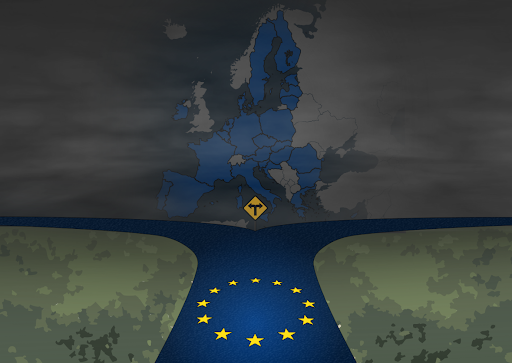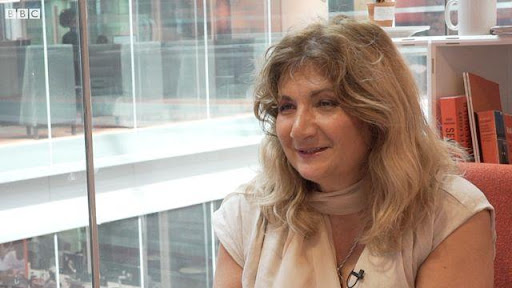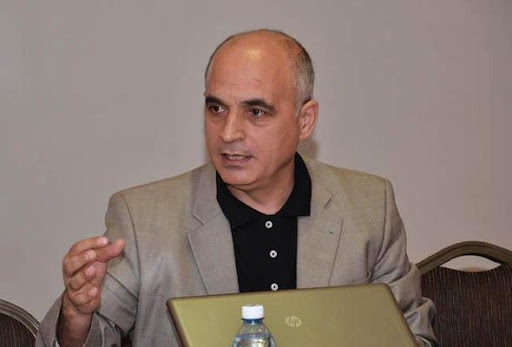
Great Agreement: Risk or Gain? – RESEARCH – PART II
Government Acts Reluctantly, Society Remains Cautious...
21 November 2023
"Negotiations on the signing of the Comprehensive Cooperation Agreement between Azerbaijan and the European Union have been ongoing for over five years, yet no result seems in sight. Although officials from both sides have reported resolving their differences on the main directions, they are unable to reach an agreement on the remaining 10 percent of issues. There has been no official information about any meetings or discussions in this direction since March of this year. What issues are the parties unable to agree upon, and is there hope for the Agreement to be signed? What do experts think about this?
The beginning of the investigation can be found here.
Anar Mammadli, the head of the Center for Election Training and Learning Democracy, says that the signing of the Comprehensive Cooperation Agreement between Azerbaijan and the European Union has been a topic of discussion for a long time, but there is no draft document in sight. At least such a project is not open to the public.

"In EU institutions and the Azerbaijani government, there is talk of the existence of such a document, but we have no knowledge of what the agreed and disagreed matters consist of. I think that the Azerbaijani government is responsible for the lack of transparency in the process. If it were up to the European Union, some details could have been disclosed. Because the experience of several countries shows that when such documents are prepared, public discussions are held, the positions of political parties and civil society institutions are studied, and the media is informed. Specifically, in Georgia, Ukraine, Moldova, and Armenia, the public was aware of the draft of such documents before they were signed. But this is not the case for us."
What could be the reasons for this delay? According to Anar Mammadli, the first reason is that the Azerbaijani side does not want to undertake serious obligations. Especially, the government lacks the political will to undertake obligations related to human rights, transparent governance, and the supremacy of law. He lists other reasons as follows: ...
"Secondly, there are differences in the European Union's approach to the issue. Some countries do not consider it necessary to sign such an agreement with Azerbaijan, believing that Azerbaijan is engaged in imitation. Signing this agreement under conditions where human rights and freedoms are not ensured would be rewarding the government.
The third reason could be that the recent intensification of relations between Azerbaijan and Armenia, military operations, and the mass exodus of Armenians from Karabakh will negatively affect these discussions. Because the attitude towards the departure of Armenians from Karabakh is not unanimous."
Our interviewee believes that under such circumstances, signing the Strategic Partnership Agreement will not be easy. Even if it is signed, its ratification in several institutions of the European Union will take time: 'Azerbaijan should consider the very serious benefits of signing this document. Whether it's the easing of visa regimes, the flow of investment into the country, the facilitation of more free movement of Azerbaijani citizens to EU countries, or the convergence in the fields of education, health, and academia with EU countries, these could lead to significant achievements. We could also benefit from the EU's financial support. It seems that such benefits do not concern the Azerbaijani government, which is more driven by corporate interests.'
According to Leyla Aliyeva, a political scientist and staff member of Oxford University, Azerbaijan's initial official stance was that the country's production would be a casualty of integration into the European Union. Therefore, it wishes to continue these discussions to develop economic defense mechanisms by that time, so that local production and business can continue to compete with foreign imports.

L. Aliyeva believes that Azerbaijan feels more independent in the issue of Karabakh than in any serious integration process: 'Integration into Europe is very necessary for Azerbaijan. Because only in this case can we realize Azerbaijan's potential for reforms. Otherwise, we will be left behind. There will be no political or economic reforms. Of course, in the discussed Agreement, political reforms occupy much less space compared to economic issues. It more closely resembles the agreement project signed by the European Union with Kazakhstan. But we have always said that we are a European country. Such a weak, superficial agreement is not suitable for a European country.'
Farid Shafiyev, the head of the Center for Analysis of International Relations, noted that it would be more appropriate to learn the position of the Ministry of Foreign Affairs regarding the documents discussed between Azerbaijan and the European Union.


This statement is made by Farhad Mammadov, the head of the South Caucasus Studies Center. He explains the reasons: "Because that document must pass through the European Parliament in one form or another, as well as the parliaments of the member countries. This is currently impossible. Even if we sign it, its adoption will not be possible. The best option is signing the sectoral documents."
Regarding the economic relations between Azerbaijan and the European Union, where do they stand, what does this sector stand to lose from the Strategic Agreement not being signed, and what does the future promise?
What do Azerbaijan's agricultural sector, farmers, entrepreneurs, consumers stand to lose the Comprehensive Cooperation Agreement with the European Union not being signed? What does this Agreement promise for Azerbaijan's agricultural sector?
Agrarian sector expert and scientist Vahid Maharramav believes that the development of agriculture in Azerbaijan depends on the implementation of modernization works in the field. Cooperation with the European Union can accelerate the modernization process of agriculture in Azerbaijan. In addition:

Widespread application of European technology in the agricultural sector would enable the production of competitive goods and products that conform to European standards;
It would create extensive trade opportunities with European countries, and aligning Azerbaijani legislation with EU standards would in turn facilitate the entry of Azerbaijani products into EU markets.”
The expert believes that if a Strategic Cooperation Agreement with the EU is not signed, Azerbaijan's agricultural sector will not be able to acquire these opportunities. And Azerbaijan's agriculture will not be able to broadly benefit from advanced European experience.
Losses for Farmers:
Azerbaijani farmers will not be able to access the world's largest agricultural market;
They will be unable to benefit from the experience of Europeans in producing high-quality, competitive goods and products;
They will not be able to acquire high-quality production tools made in Europe on preferential terms;
They will lack the opportunity to obtain cheap credit resources.
Losses for Entrepreneurs:
They will miss out on new trade opportunities and the benefits of the EU market, which is one of the world's largest;
They will be unable to take advantage of the concessions offered to partner countries by the European Union.
Losses for Consumers:
Azerbaijani consumers will not be able to access a variety of food products that meet European high-quality standards at affordable prices;
There will be no competitive environment in the Azerbaijani market, and monopolies will continue;
Vugar Bayramov, a member of the Entrepreneurship and Industry Committee of the National Assembly of Azerbaijan, states that negotiations on signing the Strategic Agreement are ongoing. In his opinion, the European Union is Azerbaijan's largest trading partner. More than 60 percent of Azerbaijan's total trade turnover is with Europe. Particularly, an increase in trade turnover has been noted in the last two years, which is related to cooperation in the natural gas sector.

“According to the latest information released by both parties, there were no fundamental disagreements regarding the areas of cooperation envisioned in the Agreement. Discussions on several economic issues were ongoing, especially regarding subsidies. The EU considers the abolition of subsidies a priority. Discussions in this direction continue. In Azerbaijan, subsidies are provided in several sectors, particularly in the energy sector, aiming at tariff regulation. Currently, there is significant economic and cooperative engagement between the parties. Therefore, even though the signing of the Partnership Agreement takes time, a deepening of economic cooperation is being observed.”
The opinion of the society, non-governmental organizations, and experts is clear. No one says “we should not do it”, the question is how it should be done. Moreover, from the above opinions, it is evident that even if we desire it wholeheartedly, the process technically requires a lot of time. Another interesting and responsible moment is the precedent of not so pleasant examples like Ukraine, Georgia, Moldova.
Integration is an expensive undertaking, especially in relation to the priorities of society. In summary, the more reluctant the government appears, the more cautious the society becomes.
So, what is the stance of official institutions representing both sides? What stage is the process really at, what has been done so far, and what lies ahead?
Elchin Rustamov













